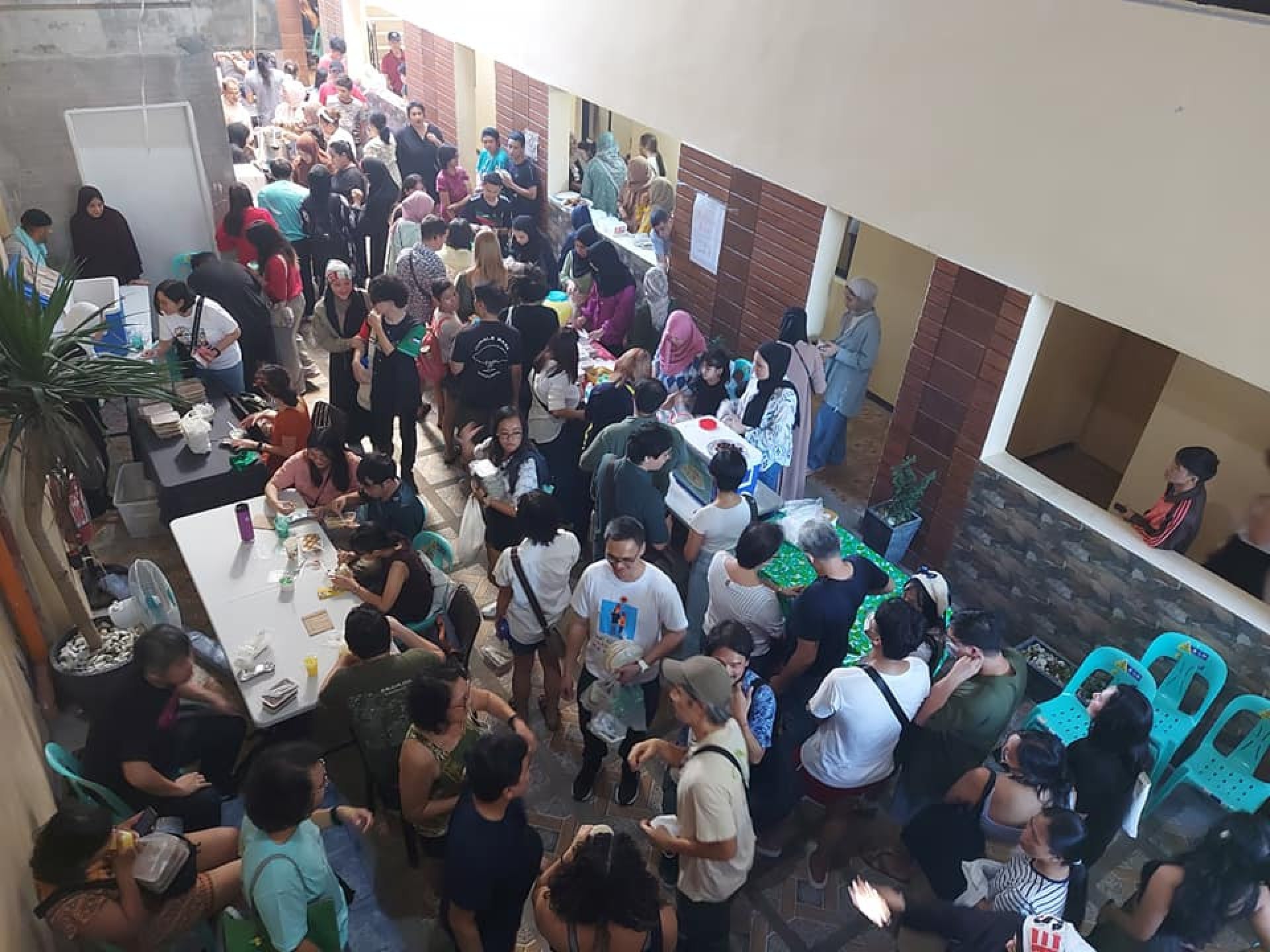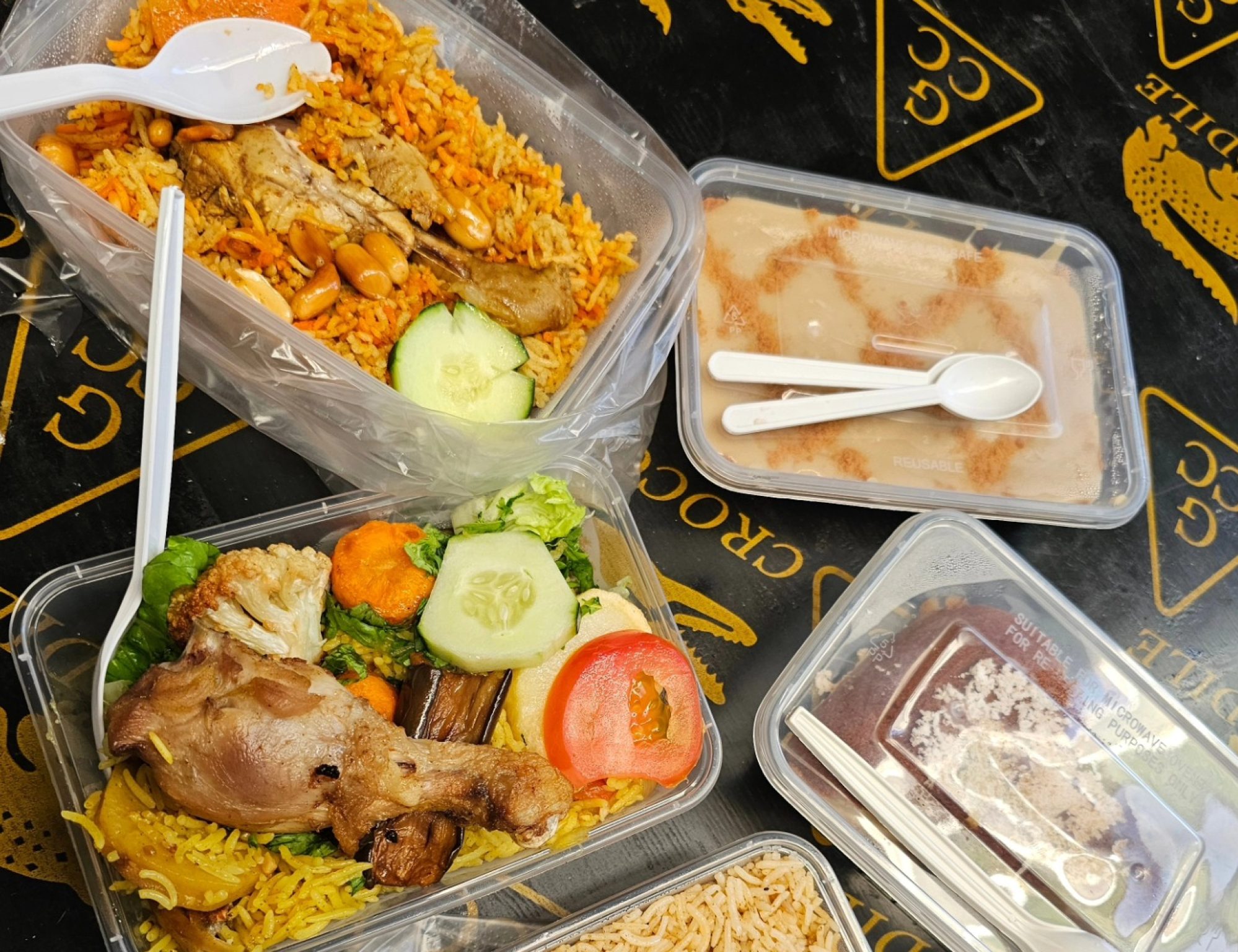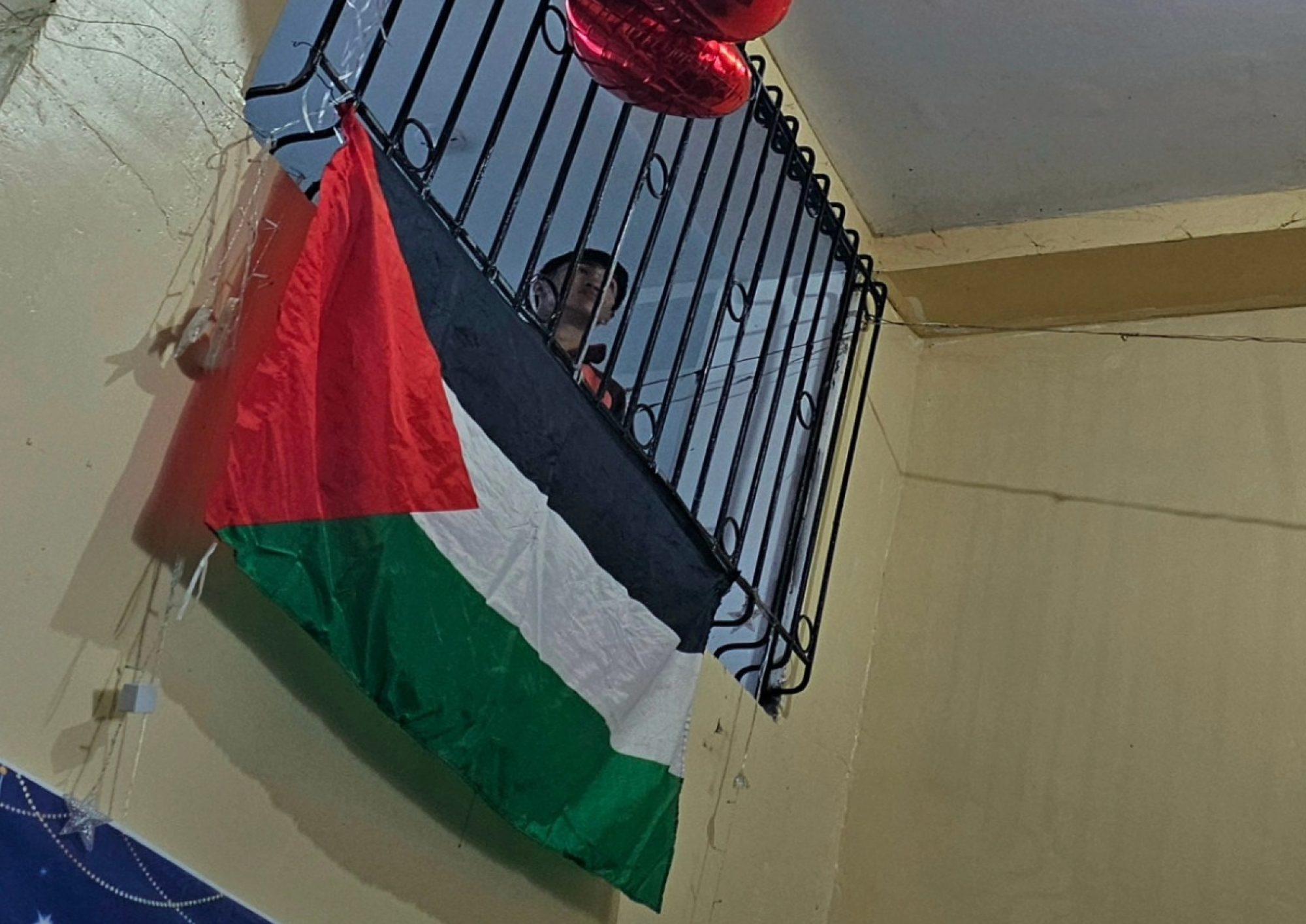A collective called the Moro-Palestinian Cooperation Team organised the one-day event at Don Antonio Village, where the Filipinos and their Palestinian spouses are staying in a four-storey building affectionately known as “Little Gaza”.
In total, 69 men, women and children in 16 families live in “Little Gaza”. All the adults are unemployed and the children are not in school.

To help the families run their food booths at Little Gaza Kitchen, Nords Maguindanao and his fellow co-founders of the collective invited sponsors and collected donations to buy equipment and ingredients.
One such booth called A Taste of Gaza served Palestinian dishes such as maqlouba, a stewed rice dish cooked in a pot, and qatayef, a pancake with nuts.
Project Urduha, a non-profit organisation that runs a mentoring programme for women, set up a social media page for the booth to promote the families’ food businesses and take online orders.
“The ladies were already selling food by word of mouth. Our goal is to get them a restaurant they can register with [food delivery service] GrabFood,” said Project Urduha coordinator Cecelia, who declined to give her last name.
It was a relief to see women and children having a safe place here in the Philippines
One of the Little Gaza Kitchen attendees, Jecs Bejar, said the booths attracted long queues and most of their dishes were sold out. Bejar, who bought chicken biryani and beef kebab, said he was eager to do his part in alleviating the plight of the families.
“It was a relief to see women and children having a safe place here in the Philippines. It made me emotional seeing the children having the chance to play,” said Bejar, who works at a migration consultancy firm in Laguna province.
Another attendee, Jopie Sanchez, a creative freelancer from Quezon City, said it was important for her to show support for the families by taking part in the event.

“The food was very good and it gave us a glimpse into the culture of Palestine and their country.”
Kamilah Manala-o, another member of the collective, recalled the difficulties the families faced after landing in Manila. They were staying in the dormitories of the University of the Philippines for a short period and had to leave last December when government aid for them ended.
Manala-o regularly visited the dormitories and brought the families halal dishes and clothes. Her collective later helped them move to the shelter in Quezon City and pledged to pay for their basic expenses for at least the next six months and up to a year.
“Our promise [to them] is that we will take care of the rent and bills so they can focus on picking themselves up and putting their children back in school … [and] focus on [finding] jobs,” she told This Week in Asia.
Filipino returnees from Gaza homeless as aid dries up: ‘they feel abandoned’
Filipino returnees from Gaza homeless as aid dries up: ‘they feel abandoned’
Several organisations that have been helping the families said the Philippine government’s refugee crisis response is inadequate.
When the first batch of families from Gaza arrived in November, they received cash aid of US$1,361 per family from the government. After being placed in hotels for three days, they found themselves without a place to stay.
Reverend Alan Sarte, secretary general of the Philippines-Palestinian Friendship Association – the organisation that helped arrange for the shelter in the University of the Philippines’ dormitories – said the government had failed to plan for the long-term needs of the Filipinos and their Palestinian spouses.
One of the key challenges faced by government agencies is the absence of clear guidelines in dealing with a refugee crisis, said lawyer and Commission on Elections officer Nesrin Cali, who has been providing legal aid for the families.
“Our existing system does not have the structure to respond to these situations. It could be a lack of funding or maybe our government officials don’t see it as a priority,” Cali said.

Among the legal matters that Cali is helping the families with include voter registration for the Filipinos and employment paperwork for their Palestinian spouses. One such case is a Palestinian refugee who was a former assistant dean at a university in Gaza.
“We’re trying to get the Palestinian husband a spousal visa so that he can get the necessary work permit. These people are highly educated and they can be employed here but the problem is their paperwork,” she said.
Calling on the Philippine government to revamp its crisis response measures, Cali added: “There should be a responsive programme for refugees, especially since most of the Palestinian men are married to Filipinas and their children are Filipino citizens. It’s just sad that they didn’t receive that support from the government.”
Fudge Tajar, a Filipino-Iranian lawyer, organised a donation drive and a halal feast last December for the Palestinian refugees, as she was motivated to help them move on from their sufferings in the Israel-Gaza war.
“You mourn those who died but you help the living because that’s how you could somehow give justice to those who were killed,” she said.

